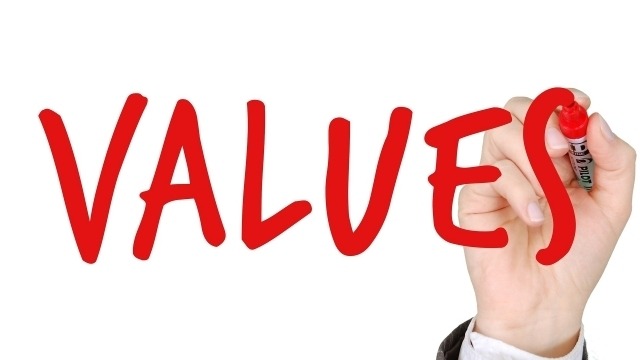Opinion: Values overboard: Coalition adrift on a sea of politics

By Mark Kenny
A version of this article was originally published by The Canberra Times.
It was originally designed to give workers a shot at what the wealthy took as a birthright - a comfortable retirement.
But even now, unless you’re rich enough to freely exploit the low-tax incentives of superannuation using surplus income, it involves real-time sacrifice. Placing some of one’s ‘hard-earned’ at the intersection of two forces not noted for their conscience - politics and capital markets - is at once, reassuring and worrisome.
Many employees fret they won’t have enough in their kitty; some, that systemic tinkering has undermined good-faith investment decisions; and even that fund management incompetence (or recession) might see investments go bad. Add to that the bleak possibility of not making it to retirement at all.
When the Albanese government strode into this space recently after promising not to touch your super, all of these nerve-endings were set a jangling.
Labor started the public debate by citing the $50 billion annual cost to the budget of superannuation tax concessions and then summarily announced that the 15 per cent tax on earnings would remain only for those accounts with less than $3 million in them – not indexed.
For the 80,000 account holders above, a 30 per cent rate will apply which is still concessional, just by the way. As we know, several have more than $100 million stashed away and one has more than half a billion … purely for retirement!
Still, Anthony Albanese and his Treasurer Jim Chalmers were careful to sidestep the broken promise charge, first, by making the change small in scale and more importantly, by delaying its commencement to July 1, 2025. This means it is not so much a broken promise from the last election as a whole new promise for the next one. Labor’s unspoken dare is, if you don’t like it, don’t vote for it.
But handing voters this yea-or-nay hasn’t stopped Peter Dutton’s opposition from proclaiming a gotcha moment and pledging to repeal the change if elected.
“They said they wouldn’t do it, they just did it,” enthused frontbencher, Paul Fletcher in a statement which must have had Labor thinking “Come in spinner!” Remember Paul Keating’s taunt to then opposition leader, Alexander Downer? “'This is the salmon that actually jumps on the hook for you”.
Dutton's eagerness shows how desperate he is to pin a broken promise charge on his opponent.
But this is not his huckleberry. Rather, it is an all-too-rare commitment to do something hard in modern politics – take a treasured boondoggle from a powerful minority to improve fairness and budget sustainability. And to subject it to a voters’ veto.
If this model works, it sets up the means for validating similar prospective reforms with voter approval. Overly generous capital gains tax discounts, for one. Reining in negative gearing on investment homes being another.
Theoretically, the Liberals should be on board – small government, budget repair, fiscal rectitude and self-reliance.
But the poor haven’t much voice in the current Coalition bubble.
You will recall that in office, the previous government demonised the “Canberra bubble” - Scott Morrison’s Australianised version of his hero’s “Washington swamp”.
Awkward questions of corruption, secrecy, and incompetence were routinely dismissed as the “bubble” intrigue of Canberra elites.
Coloured-coded spreadsheets for rorting local grants? Canberra bubble. Caught secretly trying to get your Pentecostal pastor into an exclusive White House dinner? Canberra bubble. Secret ministries? Canberra bubble.
But now the real bubble has finally emerged. In it lives the Coalition’s reflexive loyalty to its wealthiest backers – some with hundreds of millions already parked in super and millions more being earned annually, the gains taxed at mates’ rates because, well, it is for their “retirement”.
Outside this bubble are the ordinary PAYG households, many of them underpaid and or under-employed. Ordinary millennials and Gen Zs with burdensome HECS debts and no realistic prospect of home-ownership. Retirees clinging on with the age pension of just $1026.50 a fortnight for a single. Superannuants on modest annuities from their accumulated retirement nest-eggs. And of course, the jobless whose devilishly restrictive assistance tops out at $668.40 per fortnight or less than $48 per day. Next time you buy your coffee and muffin, consider whether you would do so if it ate up 20 per cent of daily costs including for housing, transport, meals, and clothes.
The eagerness of the Coalition to, as Chalmers put it, “go to war for the one half of 1 per cent of people with more than $3 million of superannuation in their accounts,” came in the same 24-hour period in which the Royal Commission into Robodebt heard astonishing testimony from the former Morrison disciple, Stuart Robert, AKA, "Brother Stuey".
Here then was the stark enunciation of who gets unflinching protection from the Coalition, and who didn't.
After days of heart-rending evidence from citizens harangued mercilessly by their own government for debts they did not owe – pushing some into ill-health and even to suicide – the erstwhile minister for government services smugly explained that his priority had been to maintain “cabinet solidarity” even after he knew the scheme was fundamentally flawed and unlawful.
“As a dutiful cabinet minister, ma’am, that’s what we do,” he man-smarmed at Commissioner Catherine Holmes SC AC, to which she shot back, “Misrepresent things to the Australian public?”
According to Brother Stuey’s novel take on the Westminster system, this solidarity obligation justified continuing operation of the income-averaging program, effectively lying in media interviews and presumably would have extended to misleading parliament if necessary.
Perhaps this bespoke version of duty makes more sense inside the Coalition bubble.
Mark Kenny is a professor at the ANU Australian Studies Institute and host of the Democracy Sausage podcast.








